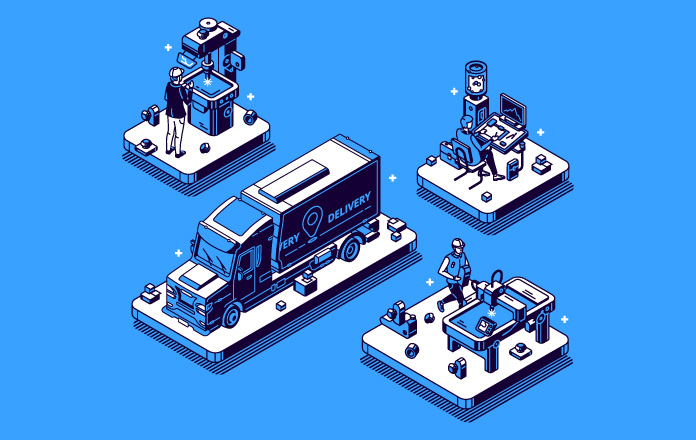Blockchain technology has potential that goes beyond cryptocurrency. Businesses in all sectors, including healthcare, finance, and supply chain, are researching blockchain technology for its capacity to facilitate bypassing tons of paperwork, secure transactions, and record-keeping associated with the existing systems. Giant automakers are keeping a close eye on blockchain growth to take advantage of its potential and have already begun to invest in it to enhance their business processes.
What are the key issues confronting automotive firms today?
New eco-friendly, smart, and energy-efficient technologies are changing the automotive industry. Emerging trends bring up new challenges, and manufacturers encounter numerous difficulties in their operational procedures. Counterfeit spare parts in the market, development of autonomous and connected cars, tracking the vehicle history, car sharing, and insurance fraud are a few of the problems complicating the auto industry.
Blockchain Technology & its Benefits:
With the launch of Bitcoin in 2009, blockchain technology gained popularity. The popularity demonstrated the distributed ledger technology’s potential for conducting secure and open transactions resulting in various alternative cryptocurrencies. Since then, businesses have been researching and testing blockchain applications to enhance operational procedures and invent new business models.
Blockchain technology has several key advantages, including:
- Transparency: By making data and information transparent, blockchain technology can significantly alter how businesses interact with customers. Anyone on the network can view each transaction thanks to the blockchain’s transparency, which fosters confidence among the users by enabling them to base judgments on what they see.
- Decentralization: Blockchain is a network of nodes that is dispersed and decentralized. This has the advantage since no single entity controls the data flow. The ledger is available to every network participant, which makes the transactions transparent. Blockchain eliminates intermediaries in industries like real estate and payments because of its decentralized nature.
- Immutability: As decentralized blockchains are immutable, input data is irreversible. Secured transaction. It is impossible to change or modify the blockchain that stores all transactions. Members with access may view and confirm transaction details.
- Security & Trust: A blockchain’s security strength depends on how decentralized and distributed its data storage is. Hackers find it nearly tough to attack since the data is stored in various locations throughout the network. Moreover, cryptographically safeguarding the records prevents fraud and unlawful activity.
- Cost Reduction: Blockchain technology makes cost reductions possible by enhancing speed, automation, and efficiency. It lowers the requirement for manual tasks like reviewing, auditing, and reporting processes while conducting transactions and eliminates the necessity for intermediaries.
Read Also: Blockchain Technology Revolutionizing the FinTech Industry
How will blockchain transform the automotive industry?
Blockchain has the potential to revolutionize the automotive industry. Because blockchain technology is distributed, immutable, and transparent, it helps every step of the automotive value chain, including manufacturing, purchasing, distribution, and service operations.
- Countering Counterfeiting: The risk of counterfeit parts reduces by using a blockchain-based system to ensure that everyone uses the same supply chain. A track-and-trace system that uses blockchain technology and IoT monitoring can effectively and consistently spot counterfeit parts in the market.
- Autonomous & Connected Cars: Blockchain technology keeps user data secure, and self-driving cars can use this data to enhance their route navigation.
- Vehicle History Management: Blockchain technology records various vehicle data, such as accident damages, major repairs, checks, mileage, and ownership details, or in another way, a vehicle’s complete history from the dealership to the present. Buyers of used cars can verify these facts to be sure the car they are paying for is legal and has a perfect maintenance record.
- Auto Insurance: Leveraging a blockchain network to exchange information about driver behavior can assist insurance providers in calculating premiums based on past claims and accidents. Blockchain can streamline the paperwork and contract negotiations for insurance because many processes are manual and time-consuming.



